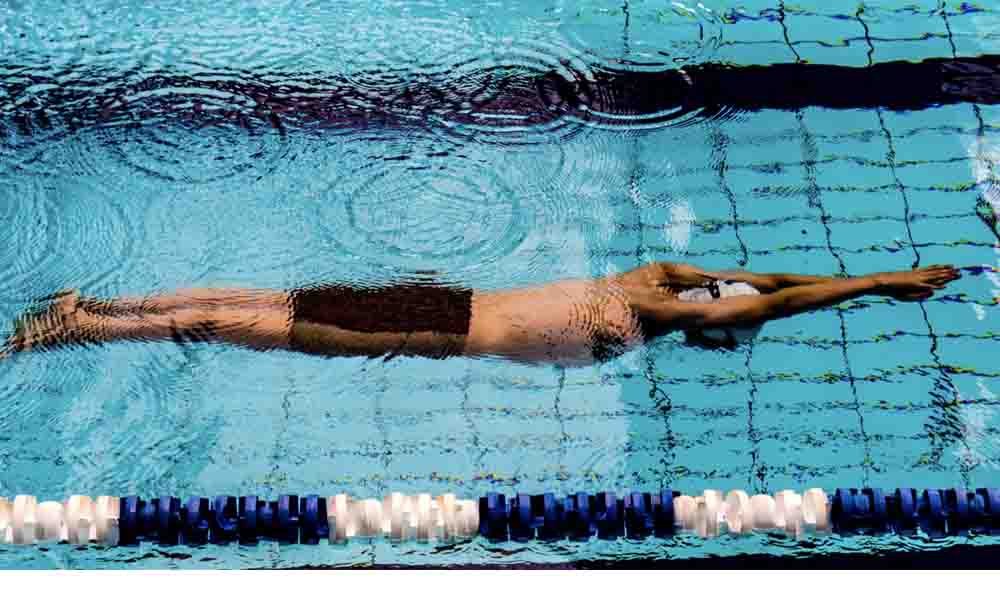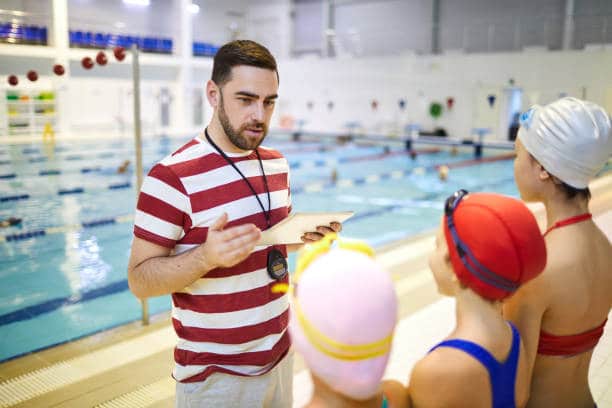The Deepwater is written by William O.Douglas, which is an excerpt from the book ‘Men and Mountains’. Here, the author tells us about how he overcomes his fear of water and we also came to know about two life-changing incidents in the author’s life.
He does very hard work and his strong willpower helps him to overcome his deep-rooted fear. So, let us now dive into the summary of Deep Water, but before that let’s have a brief go-through of the author’s biography.
- Tiger King Summary
- Summer Of The Beautiful White Horse Summary
- Keeping Quiet Summary
- Evans Tries an O level Summary
Summary Of Deep Water – About the Author
William O. Douglas was an American jurist and politician who was chosen by President Franklin d. Roosevelt also served the record for the longest-serving jurist in the supreme court.
William o. Douglas recalls a mishap of his childhood that happened when he was 10 or 11 years old. He then decided to learn to swim at the Y.M.C.A. in Yakima, as he feels it was safe. There he got water wings and went to the pool.
So, this was a short brief about the author of the deep water class 12th. Let us now go through the summary of the lesson.
Deep Water Summary Class 12th
The author had developed a dislike towards the water when he was 3 years old, his father took him to the beach in California and while they were standing on the surfing board the waves knocked him down. That seems funny but this incident filled terror in his heart.
Many years later, his longing to swim and fishing intrinsically motivated him to learn how to swim. So he decided to challenge his fear as he knows that fear stays in a person’s subconscious mind.
He tried to learn by imitating others at the pool using water wings. But soon a misadventure happened when a boy with stiff and strong muscles called him skinny and plunged him into the pool. He was struck badly into the pool and swallowed some of it and soon with his wit he came to the surface like a cork and paddled to the edge.
Those nine feet were like ninety to him. But he made a great jump and come to the surface. He tried to bring his legs up but could as he felt they were dead and paralyzed, he tried to call his mother but in vain. His eyes and nose were almost in water and he was feeling short of breath. He was again going down and soon everything turned black. He forgot everything and after that he found himself lying at the bottom.
He walked home very feeble and trembling with fear and for many days this incident kept haunting his mind. From that day he decided to learn how to swim and practiced five days a week. When he wished to get into the waters of Cascades an icy terror haunts him and his legs get paralyzed. His fear could not let him enjoy canoeing, boating, and swimming.
The instructor put a belt around him and held one end. After relaxing him he held and slowly the author went underwater, a bit of panic hovered him, his legs got frozen but soon the instructor relaxed him. After that, the instructor taught him to put his face underwater and exhale, and very soon he was able to do it the right way.
Slowly he learned to relax and put his legs straight and built a swimmer. He started practicing and told his instructor that he had become a swimmer. When he tried to swim alone he felt that he could overcome his fear but was still not complacent. So he went to Lake Wentworth in New Hampshire and there he dived off and swam two miles along with crawl, breaststroke, side, and backstroke. When he put his face underwater he could see the bottom and he finally said that he has overcome his fear.
But to remove a little bit of doubt, he again went up to Tieton to Conrad meadows and dived into the lake, shouted out with joy and the Gilbert Peak return his Echo. He has conquered his fear.
Deep Water: NCERT Solutions For Class 12th English
Q1. What is the “misadventure” that William Douglas speaks about?
Douglas refers to the incident at the Y.M.C.A. swimming pool where he almost drowned as a “misadventure.” The author was about ten or eleven years old at the time and had barely begun to learn swimming, primarily by aping others. As he was thrown suddenly into the water
by someone and he couldn’t swim, he started drowning. The struggle to come to the surface and avoid getting drowned left him with a deep fear of water which deprived him of enjoying water-related activities for many years.
Q2. What were the series of emotions and fears that Douglas experienced when he was thrown into the pool? What plans did he make to come to the surface?
The sudden realization of being thrown into the pool did not make him lose his wits immediately. Although frightened, he thought of a trick to come up to the surface but couldn’t execute it successfully. He panicked and felt suffocated by the water. His sense-perceptions gave way, his heart pounded loudly, his limbs became paralyzed with fear, his mind became dizzy and his lungs ached as he gulped water while making desperate attempts to come out of the water. Finally, he lost all his strength and willingness to keep struggling and blacked out. Douglas planned to allow himself to go down till his feet hit the bottom so that could make a big jump to come back to the surface like a cork. Then, he would lie flat on the surface of the water and paddle to the edge of the pool.
Q3. How did this experience affect him?
The near-death experience of drowning had a very strong impact on his psychology. He was deeply perturbed in emotional balance for many years. As he couldn’t bear being surrounded by water, he was deprived of enjoying any water-related activity.
Q4. How does Douglas make clear to the reader the sense of the panic that gripped him as he almost drowned? Describe the details that have made the description vivid.
Douglas takes us through his near-death experience at the Y.M.C.A. pool by detailing every little aspect associated with it. He details minutes of his emotional, mental and physical struggle with the paralyzing fear of being drowned in the water. The first-person narration of the incident also helps us to associate with his experience more deeply. Though he did not lose his wits initially, he panicked when his strategy didn’t work. His feeling of suffocation, fear, and losing hold of sense perceptions make the readers experience what he does. His eyes couldn’t see beyond the dirty yellow water. His voice did not assist him. His nose and mouth could only manage to take water to the lungs. His limbs became paralyzed with fear and his mind dizzy. His desperation to save himself kept him struggling until he went down the third time and
blacked out. All these details make the description vivid.
 Q5. Why was Douglas determined to get over his fear of water?
Q5. Why was Douglas determined to get over his fear of water?
Douglas regretted being deprived of enjoying water activities like canoeing, boating, swimming, fishing, etc. The wish to enjoy them and the craving to regain his lost confidence, while being in the water, made him try every possible way to get rid of his fear. He was finally able to overcome this mental handicap by getting himself a swimming instructor and further ensuring that no residual
fear was left.
Q6. How did Douglas overcome his fear of water?
At first, he tried to overcome his fear of water on his own. But when this failed, he got an instructor for himself who worked on Douglas’ fear very methodically. With his help, Douglas began by learning to be at ease in the water. After this, he practiced exhaling- inhaling in water to eliminate the fear of putting his head inside the water. Then, he moved on to master individual steps of swimming which were, finally, integrated into a complete experience of swimming, by his instructor. After about six months, Douglas could not only swim well but was, also, free of his fear to a great extent. At this stage, Douglas’ journey of truly overcoming his fear to its tiniest vestiges began. He swam alone in the pool. He went to Lake Wentworth to dive. He tried every possible stroke he learned. Finally, in his diving expedition, to Warm Lake, he conquered his fear completely.
Q7. How did the instructor “build a swimmer” out of Douglas?
The instructor worked gradually on Douglas’ psychology, moved on to his physical movements, and then integrated each part to build a swimmer out of him. Initially, he made Douglas swim back and forth across the swimming pool so that he could get used to it. He used an elaborate mechanism with a rope, belt, pulley, and an overhead cable to help them stay connected while Douglas was in the pool. Then, one by one, he made Douglas master the individual techniques of swimming, like putting his head in the water, exhaling and inhaling while in water, movements of his hands, body, legs, etc. Finally, he integrated these perfected steps into a whole experience of swimming for Douglas.

Q8. Why does Douglas as an adult recount a childhood experience of terror and his conquering of it? What larger meaning does he draw from his experience?
Douglas recounts his childhood experience at the Y.M.C.A. pool to enable the readers to understand the exact nature and intensity of the terror. The fear of being surrounded by the water, the fear of putting his head in the water, the fear of choking, and the fear of his limbs going numb couldn’t have been explained to a reader unacquainted with Douglas’ childhood experience. In that case, the elaborate strategy adopted by the author (and his instructor) and the time taken by him to learn or master even simple things, though put in the perspective of his fear of water, couldn’t have been understood properly. By quoting Roosevelt, “All we have to fear is fear itself,” Douglas indicates the larger meaning that he draws from his experience. For him, the importance of life became evident when he encountered death, or rather its
proximity threatening his life.
Q9. How did Douglas make sure that he conquered the old terror?
Even after the swimming training was over, Douglas wasn’t confident about his swimming or that he had overcome the fear. He was determined to completely get rid of it forever. He swam alone in the pool. He went to Lake Wentworth to dive. There, he tried every possible stroke he had learned. He fought back the tiny vestiges of terror that gripped him in the middle of the lake. Finally, in his diving expedition in Warm Lake, he realized that he had truly conquered his old terror.
In Context
The summary of Deep Water actually is an autobiographical account of William O. Douglas and it tells us how to overcome your fear with great determination and strong willpower. Through perseverance and hard work, anyone can achieve anything he/she wants in life.

